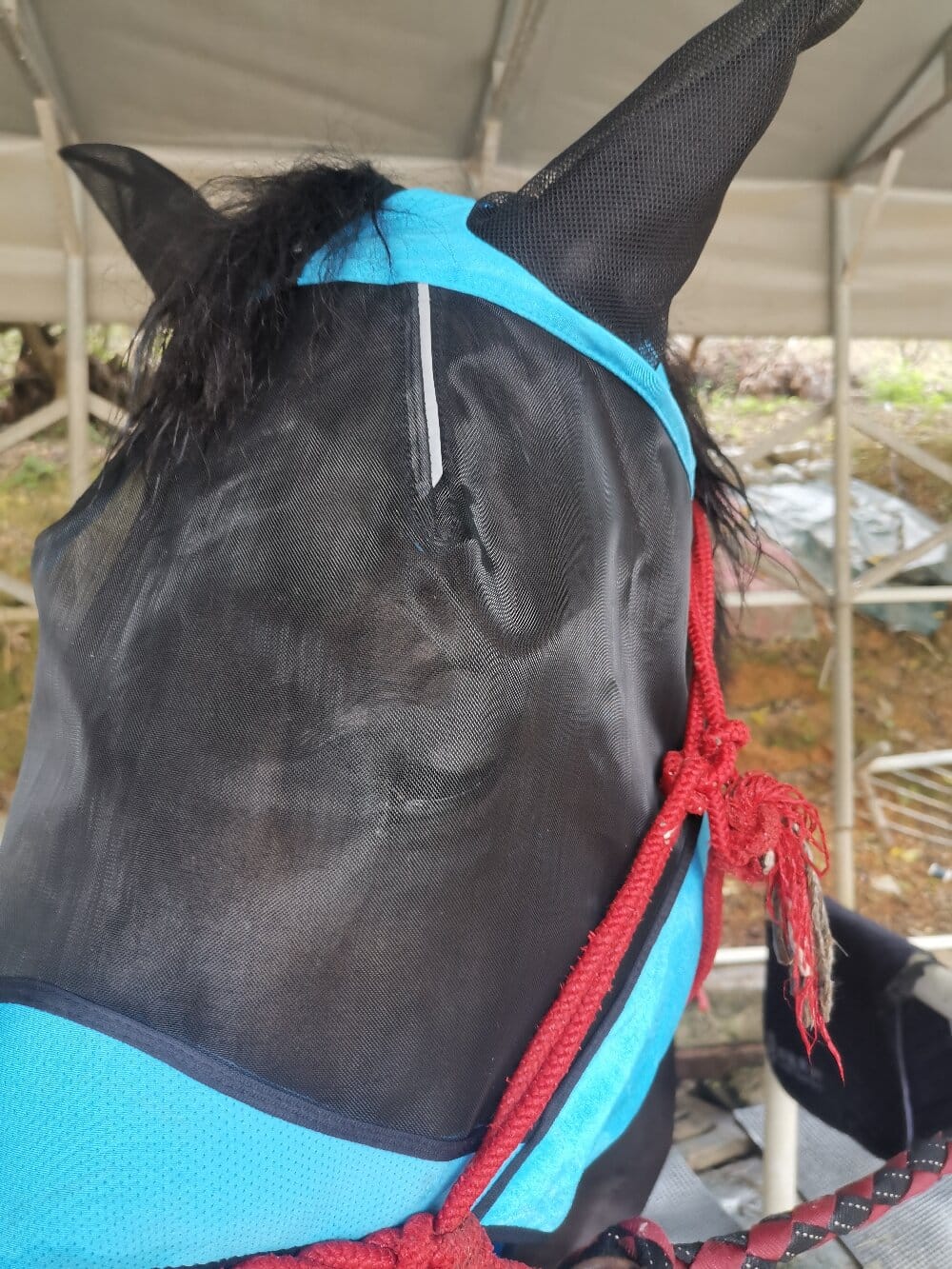If you own a horse, you’ve likely noticed how much flies and insects bother them, especially during warmer months. A horse fly mask is one of the most effective solutions to protect your equine companion from these pests. Not only does it shield their eyes and face, but it also prevents irritation, infections, and stress caused by relentless insects. In this article, I’ll share my experience and insights on how choosing the right fly mask can solve common problems horse owners face.
The Problem: Flies and Their Impact on Horses
Flies aren’t just annoying—they can cause serious health issues for horses. From painful bites to eye infections like conjunctivitis, these pests create discomfort and even lead to behavioral problems. Horses may become agitated, rub their faces against fences, or develop sores from constant scratching. Without protection, your horse’s quality of life can suffer significantly.
How a Horse Fly Mask Solves These Issues
A well-designed fly mask for horses acts as a physical barrier against insects. Here’s how it helps:
- Protects Eyes: Prevents flies from landing near the eyes, reducing the risk of infections.
- Minimizes Distress: Keeps your horse calm and focused, especially during rides or training.
- Blocks UV Rays: Some masks offer UV protection, shielding sensitive skin from sunburn.
- Reduces Allergies: Limits exposure to dust and pollen, which can trigger respiratory issues.
Choosing the Right Horse Fly Mask
Not all fly masks are created equal. Here are key factors to consider:
- Material: Look for breathable, lightweight fabrics like mesh to prevent overheating.
- Fit: Ensure the mask covers the eyes and ears without being too tight or loose.
- Durability: Opt for reinforced stitching and tear-resistant materials.
- Additional Features: Some masks include extended nose covers or detachable ear protection.
Common Mistakes When Using a Fly Mask
Even with the best intentions, horse owners can make mistakes. Here’s what to avoid:
- Leaving It On 24/7: Horses need breaks to prevent sweat buildup or rubbing.
- Ignoring Fit Issues: A poorly fitted mask can cause chafing or slip off.
- Skipping Cleaning: Dirty masks can harbor bacteria—clean them regularly.
My Personal Experience with Fly Masks
When I first started using a horse fly mask, I noticed an immediate difference in my horse’s behavior. He was less agitated during rides, and his eyes stayed clear of discharge. I experimented with a few brands before finding one with a snug fit and UV protection—now, it’s a staple in his summer gear. The key was observing his comfort and adjusting as needed.
Conclusion: A Simple Solution for a Big Problem
A fly mask is a small investment with huge benefits for your horse’s health and happiness. By choosing the right design and using it correctly, you’ll minimize insect-related issues and keep your equine friend comfortable. Whether you’re dealing with stubborn flies or harsh sunlight, this simple accessory can make all the difference.

